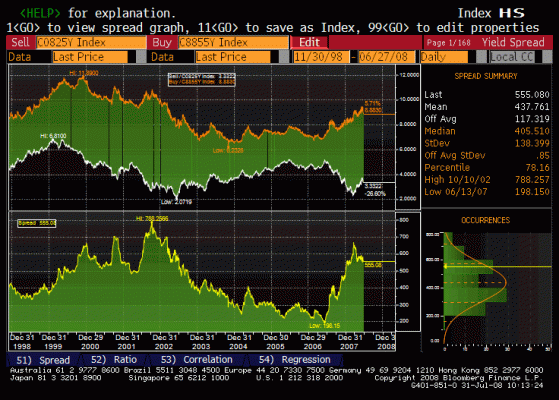By which I mean, is it a good time to buy some below investment grade bonds? Vanguard's high-yield bond fund (which is less junky than most) is yielding 9.15% (VWEHX). Their intermediate-term treasury fund (VFITX) is yielding 3.40%. Duration for both is about 5 years. If you look at the 1 year performance, the treasury fund is up 12.65% whereas the junk fund is down 2.26%. Can you say, flight to quality?
Given the spread over treasuries of 575 basis points, junk seems like a good value at this point (obviously there's some risk). What do you think?
Given the spread over treasuries of 575 basis points, junk seems like a good value at this point (obviously there's some risk). What do you think?

